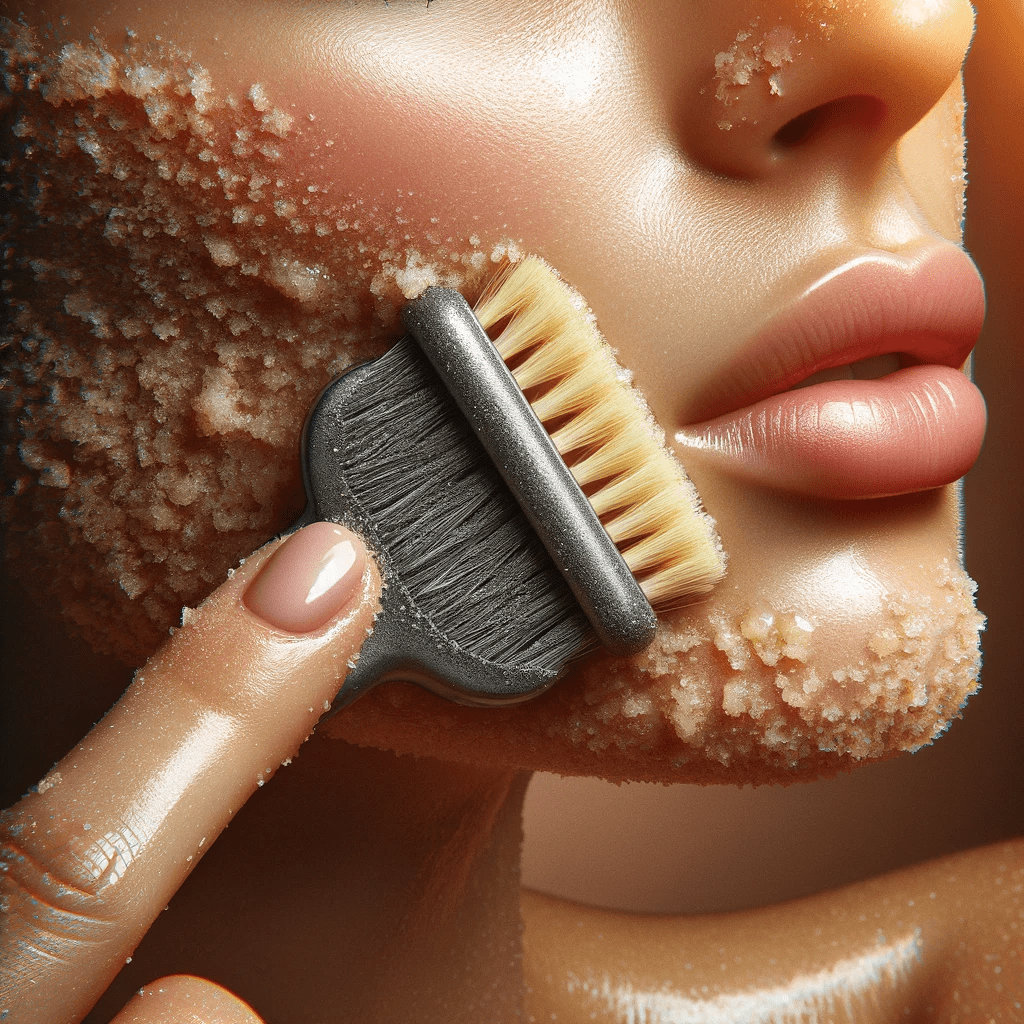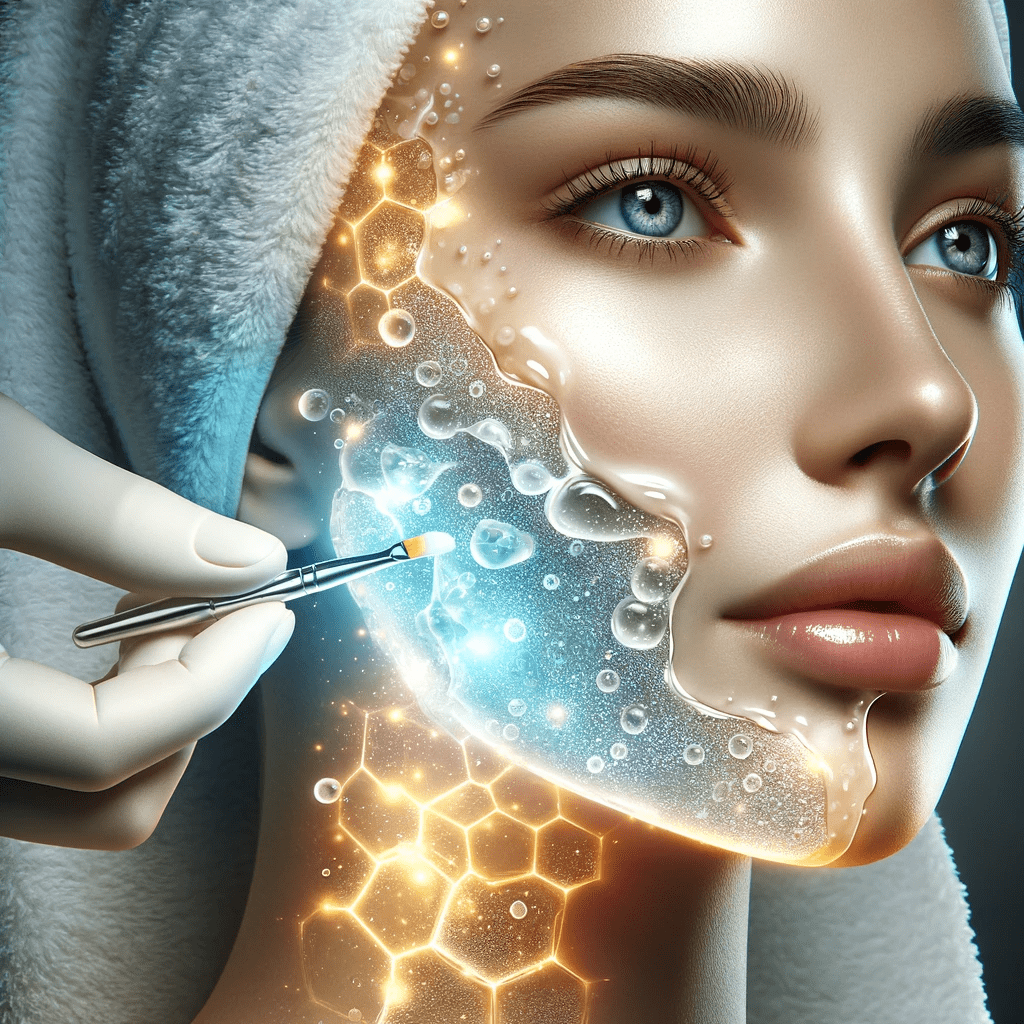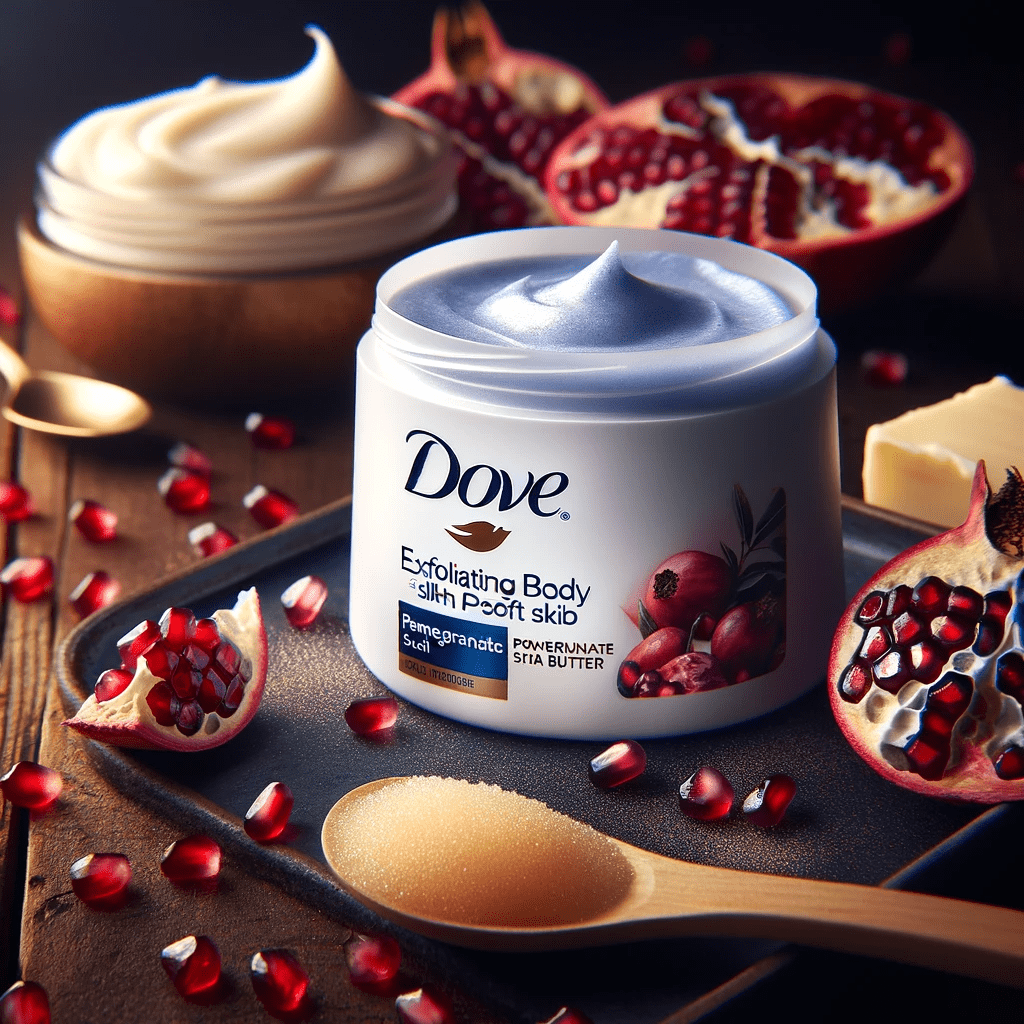Definition
Exfoliation eliminates dead skin cells, leading to a smoother, brighter, and even more complexion.
Expanded Explanation
Exfoliating regularly improves skin texture, reduces fine lines, and prevents acne by unclogging pores. Exfoliation comes in two forms: physical and chemical. It helps reduce acne fine lines and improves skin texture by unclogging pores. Choosing the appropriate method depends on individual skin type, concerns, and preferences.
Physical Exfoliation
Physical exfoliation involves using a scrub, brush, or exfoliating tool to remove dead skin cells manually. Common physical exfoliants include:
- Scrubs: Contain granular particles (e.g., sugar, salt, or microbeads) that gently slough off dead skin cells when massaged into the skin.
- Brushes and tools: Soft-bristled brushes or silicone exfoliating tools can be used with a cleanser to buff away dead skin cells gently.
Chemical Exfoliation
Chemical exfoliation involves breaking down dead skin cells using acids or enzymes instead of physical scrubbing. This process helps remove impurities and make the skin look smoother and brighter. Some common chemical exfoliants include:
- AHAs (Alpha Hydroxy Acids): Water-soluble acids (e.g., glycolic or lactic acid) that help improve skin texture, fine lines, and hyperpigmentation.
- BHAs (Beta Hydroxy Acids): Oil-soluble acids (e.g., salicylic acid) that penetrate deeper into pores, making them suitable for oily or acne-prone skin.
- Enzyme exfoliants: Exfoliants derived from fruits like papaya and pineapple gently dissolve dead skin cells, making them ideal for sensitive skin.
Examples
Example 1: A person with dry skin may use a gentle sugar scrub for physical exfoliation once a week to promote a smoother complexion.
Example 2: Someone with acne-prone skin may benefit from a salicylic acid-based chemical exfoliant to unclog pores and prevent breakouts.
Related Terms
Skincare: The “Skincare” glossary describes skincare as a crucial practice for maintaining and enhancing skin health, appearance, and feel. It emphasizes the importance of personalized routines and targeted products tailored to individual needs.
Cleanser: The “Cleanser” glossary emphasizes cleansers as key to healthy skin by removing impurities. It details effective cleansing types and techniques. It provides insights to help readers select the ideal cleanser for their skin.
Exfoliation Visual Aids On Amazon
External Resources
Safe Exfoliation Practices for Home Use: This post on the “American Academy of Dermatology Website” emphasizes the importance of safe exfoliation practices to avoid skin damage. Exfoliating the skin can improve its appearance, but incorrect technique can cause harm, such as increased redness or acne breakouts. The article provides tips from board-certified dermatologists on exfoliating safely at home.
A Guide to Exfoliation: “Exfoliating Body Butter Bars: A Guide to Natural, DIY Moisturizer and Exfoliation Bars” is a comprehensive guide on creating homemade bars that simultaneously hydrate and exfoliate the skin, offering natural, dual-action skincare solutions.
Related Articles
How to Boost Elastin Production for Firmer, More Youthful Skin: This article “How to Boost Elastin Production for Firmer, More Youthful Skin” on Sunny Days Go! Discusses the importance of elastin, a protein essential for maintaining firm, supple, and youthful skin. It explains that as we age, the natural production of elastin decreases, leading to sagging, wrinkles, and a loss of elasticity. The article explores methods to enhance elastin production through skincare ingredients, lifestyle changes, and professional treatments.
The Ultimate Guide to Retinol: Benefits, Usage, and Side Effects: This article, “The Ultimate Guide to Retinol: Benefits, Usage, and Side Effects,” emphasizes retinol is a potent skincare ingredient known for its anti-aging and acne-fighting properties. It can transform skin, leaving it looking smoother and more youthful. Retinol is a powerful skincare ingredient known for its anti-aging and acne-fighting properties. It can change skin, leaving it looking smoother and more youthful. As a form of vitamin A, retinol enhances skin health by promoting cell turnover, boosting collagen production, and regulating sebum production, making it a widely favoured option among dermatologists and skincare enthusiasts.



